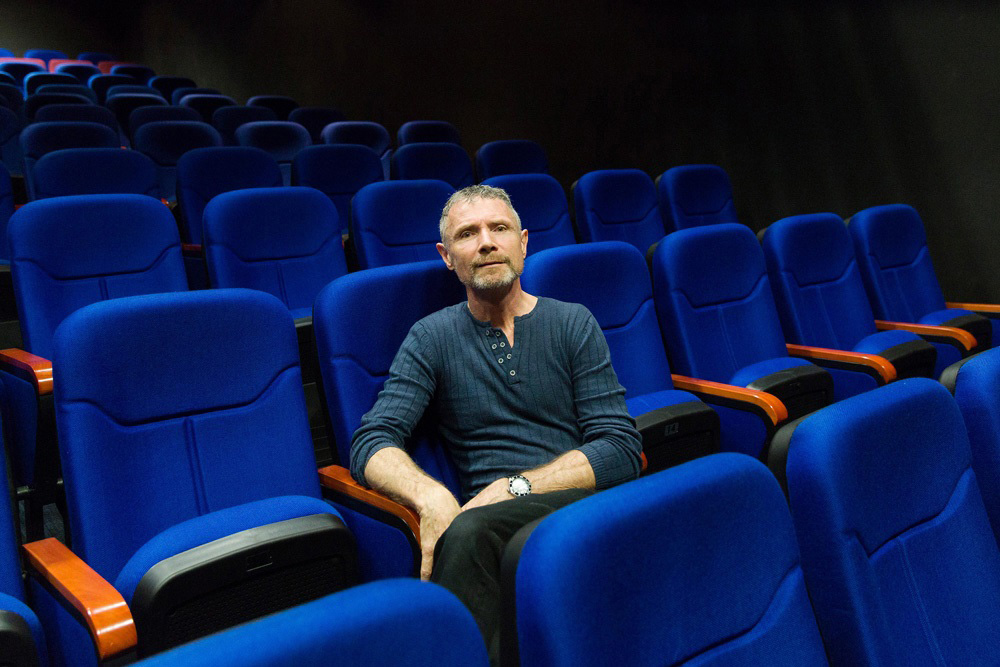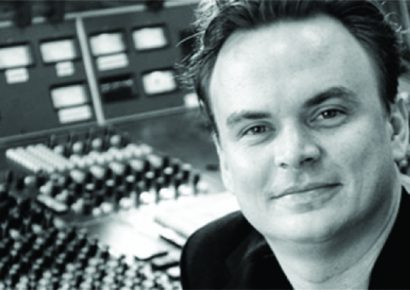“I think that when you get material on the floor is when things tend to come to life,” Glynn suggests as he prepares himself for their first full rehearsals. “That process is always about discovery, particularly with a show like this. It’s determined a great deal by the content of the music and the way that we interpret the songs in a Eurovision-esque way. That comes down to not just the songs themselves, but the people who are performing the numbers. They have their idiosyncrasies, and that can affect the way they work with the choreographers. It’s very much an interactive experience, which can change a lot depending on who is in the room. As the director, my job is to hopefully lead everyone in a certain direction, but give everybody the opportunity to express their own creativity.”
“There’s an energy you can’t fake when you have people in one place working together,” agrees Daniel. “Fortunately we’ve already been able to meet and work with a lot of the cast already and workshop the songs, so it feels a bit like family. We’ve produced an album for Mikelangelo, City of Dreams, and that was a collaboration with a lot of local musicians, bringing together a lot of different strands, genres and creators. So we feel like we’re definitely prepared to do something like this. We like working across different ideas and finding new approaches – it’s very gratifying.”
Given the timbre of the production – eleven different nationalities competing for glory, each with their own unique style and appearance – it allows the creators a level of expression that is as colourful as it is varied. The Frankel Brothers’ association with Mikelangelo proved particularly fortuitous, since Glynn himself had seen the renowned crooner in action and had hoped to entice him on board.
“When we first met Glynn to discuss the concept, we immediately thought of Mikelangelo,” Gideon recalls. “We love collaborating with him. We thought he’d be great to be involved, but independent of us Glynn had seen Mikelangelo’s Balkan Elvis show and wanted to get him involved, so it was very serendipitous. He penned these great lyrics, we set it to music, and now it’s the song for Iceland, this very tongue-in-cheek anthem. It begins with a wolf howl. I mean, look, it has everything,” he laughs.
From last year’s winners, (the disco-tawdry Come Alive in Belarus!), to Norwegian punk-rock (Haircut for a Revolution) to quirky Irish folk (Plastic Heart), Song Contest will be a grand showcase of genre and exaggerated patriotism. Much like Eurovision itself, it is a celebration of difference, but also of the musical ties that connect people regardless of border or distance.
“I think the perception of Eurovision has changed, particularly in the last couple of years now that Australia competes,” Glynn muses. “Last year with Guy Sebastian, 4.7 million people watched, and this year I think it could be more again. There’s something slightly altruistic about it. The whole purpose initially was to bring together post-war Europe, where you had people who were competing on the battlefield now competing in song. To mend these broken countries. I love that idea of community coming together through music, which is an aspect of Song Contest as well. That for me is very important.”
For more information about Song Contest – The Almost Eurovision Experience, visit songcontest-musical.com.

